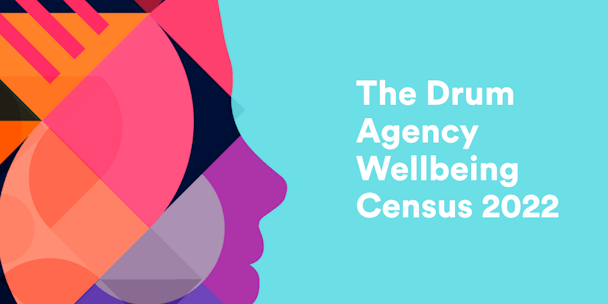Agency Wellbeing Census: only 35.7% of agencies use blind CV reviews
The Drum’s Agency Wellbeing Census explores how UK agencies are attempting to fix their recruitment issues.

The Drum released the findings of the Agency Wellbeing Census this week / The Drum
Agencies have been struggling to recruit fresh talent into the industry for several years now. The closure of ad schools, the industry’s own reputation for long working hours and competition from other sectors of the creative industries meant the business was in trouble with younger candidates long before the pandemic.
But how agencies go about recruiting new staff has itself been an area of tension within the industry in recent years.
The traditional hiring process – of CVs scrutinized for big name universities, positions advertised in half-hidden corners of the web and internal staff kept in the dark about positions they might want to go up for – has been a significant obstacle to making the agency world a fairer, more equitable and more diverse place to work.
For those seeking work without the aid of personal connections or structural advantages, the industry is still difficult to penetrate. Industry campaign groups such as Common People have sprung up in recent years to lobby agencies to fix these issues. Our Agency Wellbeing Census, a survey of over 200 British agency businesses, sheds some light on the state of play.
Advertisement
Consider the practice of reviewing CVs ’blind’ – that is, viewing a résumé or application with all the identifying information scrubbed – an increasingly common means of checking a candidate’s suitability for a role without a hiring manager being informed by unconscious biases.
Large agencies, such as AKQA, have had such measures in place for several years but in our survey we found that only 35.7% of agencies use blind CV reviews. Agencies with over 500 staff were more likely to employ these systems than smaller ones, though.
Advertisement
Surprisingly 85.8% of the agencies we spoke to for the Census said they did not require candidates to hold a university degree or equivalent qualification.
According to data from The Sutton Trust and The Bridge Group published earlier this year, just 12% of workers in the creative industries come from a lower socioeconomic background (the national average for the rest of the economy is 29%). Requiring a degree can act as a barrier to entry for candidates from outside the middle class – and dropping that requirement can make agencies more accessible to people entering the industry via an alternate route.
Suggested newsletters for you
Happily, the majority of agencies we surveyed – 95.2% – told us they advertise every new position publicly. But 14.6% told us they limit some positions only to outside candidates and senior staff, rather than everyone at their company. That could limit the opportunities available to junior staff – potentially a mistake, given that the lack of career progression being one of the biggest reasons staff choose to leave agencies, according to findings we published this week.
Far fewer agencies utilized apprenticeship schemes, one of the other primary non-university routes into the industry. Apprenticeship schemes are utilized by a modest majority of agencies; 60.7% of our respondents told us they either operate their own or take part in a wider apprenticeship program.
Explore more of the findings from our Agency Wellbeing Census here.

